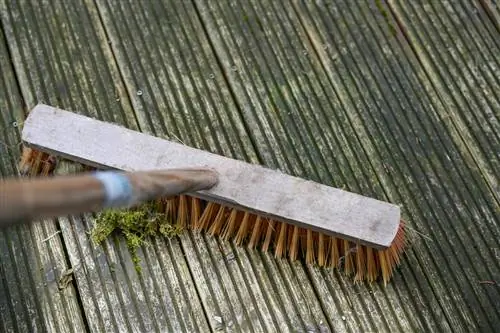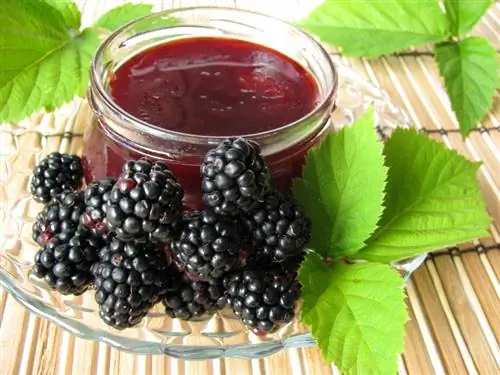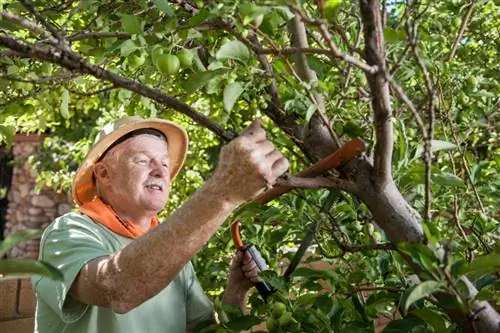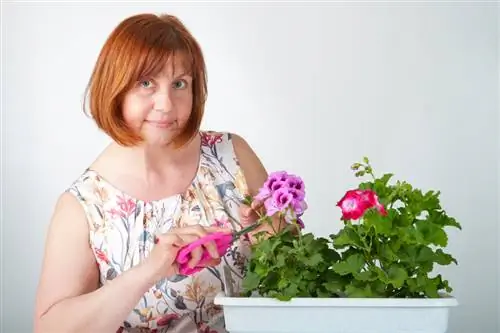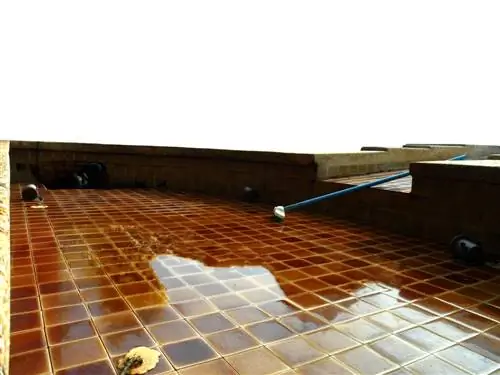- Author admin [email protected].
- Public 2023-12-25 17:45.
- Last modified 2025-01-23 11:22.
Algae can be found where water and sunlight meet, i.e. (almost) everywhere. But they are not always welcome. However, removing the algae can be a tiring task. Read here how you can make your work easier.
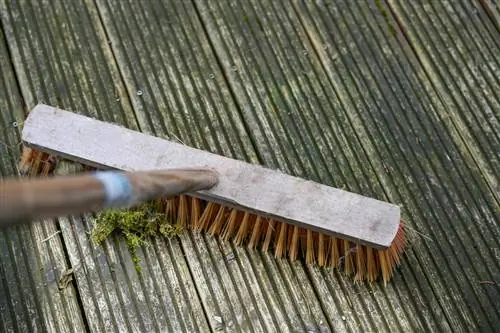
How and with what can I remove algae?
Ecologically speaking, the most sensible method ismechanical removal You can more or less easily scrub algae off stones and other solid surfaces and collect them from water surfaces with a landing net. It is also ideal to prevent or at least contain algae growth in advance.
How do I remove algae from the lawn?
Algae can grow on impermeable, heavy soils, even in the most well-kept lawn. Although they are not harmful, they are not particularly pleasant either. The algae coating dries quite well in the sun and can then be picked off relatively easily. If the infestation is small, it is often enough to scarify the lawn. This is also recommended as a preventive measure so that algae cannot grow in the first place.
How to remove algae from stones?
Green covering on garden paths, walls or patio stones can be easily removedwith a high-pressure cleaner. You can also scrub smaller areas with a brush. However, this is not important for cleaning. If possible, you should avoid using chemical cleaning agents.
How can algae be removed from the pond?
First you should remove the algaefrom the water surfaceA pond vacuum cleaner can be of great help to you, especially if there are a lot of small and fine algae in the water. You should avoid vinegar and other products that kill algae. If you have a lot of algae in your pond, then think about adding algae eaters. They prevent the algae from spreading again. For example, various species of carp are suitable, but also the gudgeon, the rudd or the golden minnow.
How do I remove algae from my pool?
If your pool is empty, thenclean it thoroughly with a pressure washer or a scrubber. Chlorine is helpful in a filled pool, but the agent should only be used carefully. Alternatively, a cover or shading helps against algae infestation in the pool, as well as a lot of movement of the water.
Tip
Home remedies versus chemicals
The fact that chemical agents harm the environment is not a question, but is now common knowledge. What is less common, however, is the fact that some home remedies may not be used in the garden because they pose a he alth risk to plants and/or animals. S alt, vinegar, soda and baking soda cannot be used without reservations and not everywhere in the garden to combat algae.

